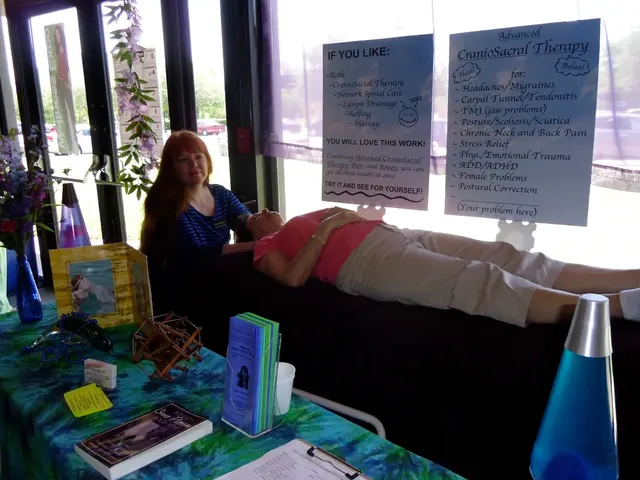Loving Care: Anita Kupsch's Husband Tends to Her at Home in Face of Dementia
- Without a doubt, the hearts of many fans ache: Once a vivacious stage presence, actress Anita Kupsch now grapples with the insidious grasp of dementia. As she reaches her 85th birthday on May 18, the renowned figure struggles with managing daily life, recollecting past roles, and engaging in meaningful conversation with her devoted husband, Klaus-Detlef Krahn (79).
Tender Care from Her Partner
Homebound wife tenderly cared for by her devoted husband - Domestic spouse provides sustained care for his partner within the household
As she nestles in the sanctuary of their Berlin home, Krahn provides tender care for his beloved—described in an interview with "Bild" as a harmonious retreat. "We've shrunken into a shell, making ourselves comfortable here," he professes. "I've acquired a large TV where she takes delight in 'Rote Rosen' and 'Sturm der Liebe'. I stand by her side while I iron."
Krahn assumes a range of household duties, including cleaning, cooking, and other tasks "as long as I am physically able." This, he asserts, is a question of honor. "It's a given: in sickness and in health. Our relationship endures almost 45 years. You must repay the favor to your partner, or else you're a cad. I'm certain Anita would have done the same for me."
A Subdued 85th Birthday
Anita Kupsch may be a familiar face from stage productions like "Golden Girls" (2013), "Harold and Maude" (2016), or her captivating roles on TV shows such as "Tatort", "Immer wieder Sonntag", or "Ein Heim für Tiere". Her most memorable performance, perhaps, was that of medical assistant Gabi Köhler in the ARD evening series "Praxis Bülowbogen" alongside Günter Pfitzmann (1924-2003).
Her gradual withdrawal from both the stage and public life over the years has rendered her 85th birthday on May 18 a quiet affair, as Krahn reveals, largely due to her struggle with dementia. "No celebration this year," he shares, " regretfully, it's not feasible."
- Dementia
- Partner
- Berlin
While caring for a dementia patient at home in Berlin, family support and informal caregivers play crucial roles. The German healthcare system prioritizes person-centered care, allowing individuals to preserve their independence for as long as possible[1]. In the local context, this care often encompasses elements of professional support, family assistance, and community resources.
Family members, like Krahn in this instance, often involve themselves in daily tasks, providing emotional support, and caring for their loved ones affectionately[2]. Professionals, such as nurses, therapists, and caregivers, may also be recruited for assistance with various daily living activities and the management of dementia[3]. Community resources extend to support groups for both caregivers and those diagnosed with dementia, providing additional emotional support[4].
The pursuit of innovative housing arrangements in Germany includes the development of shared-housing concepts, aiming at a homelike environment with professional support[5]. Although most prevalent in institutional settings, these approaches may hold promise as a future model for home-based dementia care.
Caregivers in Germany can benefit from education and training programs, such as language courses and skills-enhancing workshops, to unlock better career prospects in the healthcare sector[6].
[1] https://www.alzheimers.org.uk/sites/default/files/2021-05/Dementia-Care-Planning-Guide_0.pdf[2] https://www.alzheimers.net/care-planning/caregiving/[3] https://www.alz.org/help-support/caregiving/staff[4] https://www.alzheimers.net/support/community_events/[5] https://www.ncbi.nlm.nih.gov/pmc/articles/PMC6950075/[6] https://www.care-germany.com/caring-en/care-professions/care-training-in-germany/
- As Krahn provides care for his wife Anita Kupsch, who is faced with dementia, it underscores the significant role played by family and informal caregivers in dementia care.
- Despite the challenges presented by dementia, the scene in Krahn's Berlin home exemplifies the importance of community-centered care, encompassing emotional support, family assistance, professional resources, and community resources that contribute to maintaining a person's independence.
- In the pursuit of optimal dementia care, ongoing education and training programs can empower caregivers like Krahn, opening doors to improved career prospects in the healthcare sector.








